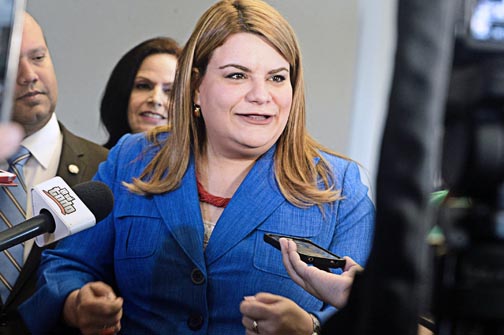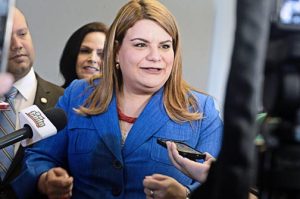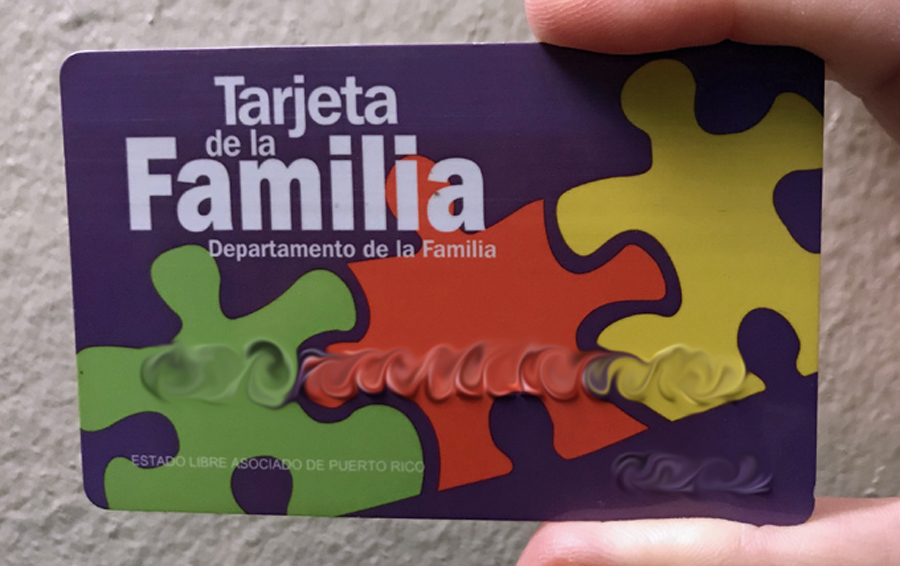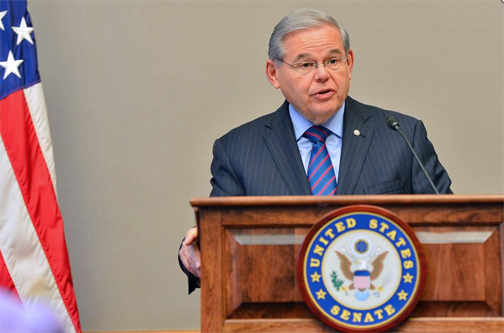González promotes manufacturing incentives for P.R.

Puerto Rico’s Resident Commissioner in Washington, Jenniffer González-Colón, has filed legislation to extend indefinitely the application of Internal Revenue Code Section 199 in Puerto Rico, together with co-sponsors congressmen Carlos Curbelo (R-Florida 26), John Lewis (D-Georgia 5) and José Serrano (D-NY 15).
“Having Curbelo and Lewis, members of the Ways and Means Committee that would work on the bill, as cosponsors, gives it an additional push as well as follows up on a recommendation of the Puerto Rico Economic Development Task Force,” she said.
“This bill backs up the national policy to reinforce domestic markets and investments, providing a consistent fiscal treatment for manufacturing operations under our tax laws,” González-Colón said.
H.R.1403 would amend the 1986 Internal Revenue Code to make permanent the exemption for income attributable to domestic production activities in Puerto Rico. It would apply to U.S.-based companies that operate branches in Puerto Rico as national companies.
The Resident Commissioner is acting to boost the island’s economy and make it more attractive to business, as the continuation of those incentives is highly important to companies representing more than $3.5 billion a year in manufacturing in the island economy.
This bill is part of the incentive plan presented by González-Colón before the Private Sector Coalition and counts with its support. It is estimated the benefit of the extension of these provisions in Puerto Rico is of $365 million over two years.
“Congress is at work to improve the Internal Revenue Code, so I am directing my effort towards having Puerto Rico treated as best is possible under this reform, reflecting the reality that manufacturing in Puerto Rico is American manufacturing, bearing the ‘Made in USA’ label,” she said.
Last year, then-congressman Tom Price, now Secretary of Health and Human services, filed H.R. 5400 to extend Section 199 indefinitely. The congresswoman’s bill proposes identical language.
Congress first introduced Section 199, about deduction for domestic production activities, into the Internal Revenue Code in 2004 as part of that year’s American Jobs Creation Act.
This was done to support the domestic manufacturing sector, reducing the effective corporate tax rate to promote international competitiveness and replace prior incentives that had been disallowed by the World Trade Organization.
However, Puerto Rico was left out after the Resident Commissioner at the time, Aníbal Acevedo Vilá, opposed it saying “that is not what we want,” the Resident Commissioner’s office said.
It was in 2006 that the next Resident Commissioner, Luis Fortuño, corrected that omission under the Tax Relief and Healthcare Act. The deduction is available to U.S. companies that operate in Puerto Rico as a domestic branch, not to those that operate as Controlled Foreign Corporations.
The provision that extends Section 199 deductions to Puerto Rico operations, however, applies only in a limited-time fashion and requires periodic re-authorization through extension of tax legislation, the last of which expired Dec. 31, 2016. The González-Colón bill would be effective for tax years beginning after Dec. 31, 2016.
Section 199 allows a company to receive a deduction equivalent to 9 percent of its taxable income obtained from “qualified production activities” inside the United States jurisdiction. This provision creates a reduction in the effective top tax rate a business may pay on that income from 35 percent to 32 percent.
“Qualified production activities” under the law include, among others, manufacture of goods, electricity and water production, film production and domestic construction of real property.













